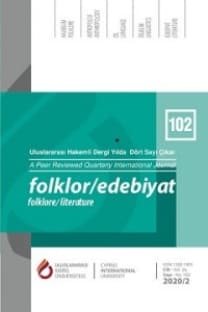ANTHONY TROLLOPE’UN THE WAY WE LIVE NOW ADLI ROMANINDA BAŞKA İNSANLARIN DUYGULARIYLA OYNAMANIN BEDELİ VE SAHTEKÂRLIK
1837 de başlayıp 1901’de sona eren Victorian Dönemi İngiliz İmparatorluğu’nun eşi benzeri görülmemiş bir hızla gelişip yayıldığı bir dönemdir. Bu dönem dünyada endüstrileşmeye başlayan ilk ülke olan İngiltere’yi gelişmişliğin en uç noktasına taşımaktadır. Kırsal yaşam odaklı hayat tarzları, zenginliğin artmasına yol açan modern yaşam tarzına ve kentsel odaklı ekonomiye dönüşmektedir. Şehirler hızlı bir büyüme içerisine girmekte, çevre değişmekte, insanların yaşam tarzları farklılaşmakta ve büyük çaplı üretim tarımsal üretimin yerini almaktadır. Bu dönemdeki iyimserliğe ve refaha rağmen, hızlı sanayileşmeyle ilişkili bazı problemler ortaya çıkmaktadır. İşsizlik, yoksulluk sosyal güvenliğe duyulan aşırı ilgi İngiliz toplumundaki bireyler arasında huzursuzluğun belirmesine yol açmaktadır. Charles Dickens’tan Elizabeth Gaskel ve Anthony Trollope’a kadar bu dönemin yazarları, Victorian Dönemi konularını ele almakta ve toplumun yapısını değiştiren unsurları eleştirmektedirler. Bu çalışmanın amacı, en hızlı sanayileşmenin etkilerini Anthony Trollope’in bakış açısıyla yansıtmaktır. Şimdiki Yaşam Tarzımız adlı romanında materyalizmi ‘’muhteşem yatırımcı’’ olarak sunmakta ve- ekonomik güç- olarak değerlendirilen sahtekarlığın İngiliz toplumundaki ekonomik,sosyal, dini ve politik kurumlara sızması analiz edilmektedir. Bu çalışma, kurumlarla beraber insanların da sahtekarlığa olan aşırı ilgisini ortaya koymakta ve maddi çıkarlara dayalı ilişkilerin hüsranla sonuçlandığını göstermektedir. Bununla beraber, başkalarının duygularıyla oynamanın bedeli ve aşkın, ahlaki değerlerin önemi ele alınmaktadır.
DISHONESTY AND THE COST OF PLAYING WITH OTHERS’ FEELINGS IN ANTHONY TROLLOPE’S THE WAY WE LIVE NOW
The Victorian Period, beginning in 1837 and ending in 1901, is a period when British Imperial develops and expands with an unprecedented speed. This period brings England- the first industrialized country in the world- to the highest level of develeopment. During this period, rural based life styles change into urban based economy and modern life which results in increase in wealth. Cities experience rapid growth, life styles of people differentiate, the landscape changes and massive production replaces agricultural production. Despite the prosperity and optimism in this period, some difficulties associated with the rapid industrialization emerge. Unemployment, poverty and competitive desire for social security appear causing restlessness among the members of the British society. The authors of this period from Charles Dickens to Elizabeth Gaskel and Anthony Trollope handle the issues of Victorian period and keep a critical eye on the matters changing the structure of the community. The aim of his study is to reflect the effects of rapid industrialization through Anthony Trollope’s view. In his novel titled The Way We Live Now he presents the introduction of materaliasm characterized by a ‘’great financier’’ and the leakage of dishonesty- as the financial power- into economical, religious, social and political institutes of British Community is analyzed. This study, displays the excessive interest of both the institutes and individuals to dishonesty at the same time proves that financial benefits result in frustration. Additionally, the presentation of the cost of playing with others’ feelings and the significance of love and moral values are handled.
___
- Childers, J. W. Social class and the Victorian novel. na.
- David, D. (Ed.). (2012). The Cambridge companion to the Victorian novel. Cambridge University Press.
- Goodlad, L. M. (2010). The Trollopian Geopolitical Aesthetic. Literature Compass, 7(9), 867-875.
- Kendrick, W. M. (1979). The Eustace Diamonds: The Truth of Trollope’s Fiction. ELH, 46 (1), 136157.
- Kincaid, J. R. (1977). The Novels of Anthony Trollope. Oxford University Press.
- Levine, C. (2012). Victorian realism. na.
- Sutherland, J. A. (1982). Trollope at Work on The Way We Live Now. Nineteenth-Century Fiction, 37(3), 472-493.
- Trollope, A. (2005). The way we live now. Broadview Press.
